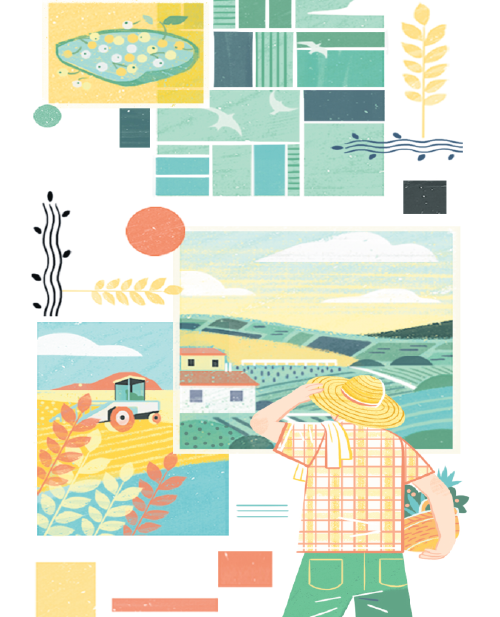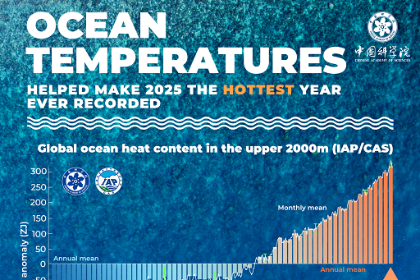Rural recovery and resilience


Natural capital investment in agriculture is key to reviving food production, creating jobs and securing livelihoods
The health and economic impacts of the novel coronavirus outbreak are being felt across developing Asia. As the region moves toward recovery, agriculture remains essential to reduce poverty and food insecurity.
Before the pandemic, agriculture accounted for a significant part of the economy for many emerging countries-7.7 percent in China, 12.7 percent in Indonesia, 7.3 percent in Malaysia, 8.8 percent in the Philippines, 8 percent in Thailand, and 14 percent in Vietnam. Since millions of rural migrants lost their jobs in cities because of the pandemic and returned to rural homes, rural development is vital to the post-pandemic recovery. As experiences in Thailand and the Philippines have shown, investments in agriculture can help rural communities recover after a crisis, reviving food production, creating jobs and securing livelihoods.
Productive and sustainable transformation of agri-food systems is a key element in the successful transition from middle to high income status. This is always challenging. But as countries push for economic diversification, expand the use of modern technologies, and establish effective management of food supply during the pandemic, many countries in developing Asia are well-equipped to overcome the challenge.
In the past, farmers had few incentives to pursue sustainable agriculture and protect natural assets without incurring significant cost or loss of income. This was because of the disconnection between the retail price of food and the cost of production and distribution reflecting implicit environmental costs.
But East Asia and developing countries along the Mekong River have started introducing natural capital accounting, such as gross ecosystem product, to attach a monetary value to nature, and applying eco-compensation or payments for ecosystems to provide incentives for farmers to change behaviors. These are critical to the sustainable transformation of the agricultural value chain, and can be replicated in other regions including Central and South Asia.
In February, China unveiled a new government body for the promotion of rural vitalization as the world's most populous country shifted its policy focus to further enhancing natural capital investment and boosting rural areas. The same week, China's top leaders outlined priorities and tasks for the next stage of reform at a key meeting, which stressed efforts to explore a market-based, sustainable way to realize the value of ecological products.
The 52nd session of the United Nations Statistical Commission, which was held in early March, has adopted the System of Environmental-Economic Accounting as an international statistical standard. This new statistical framework will enable countries to measure their natural capital and understand the immense value of nature and the importance of protecting it.
Looking forward, several opportunities exist to continue the drive toward a more resilient and sustainable recovery in rural Asia.
The Asian Development Bank is working with its developing members to establish an agribusiness marketplace on a digital platform. This platform will integrate modern advanced technologies, such as the internet of things, artificial intelligence, big data, cloud computing and blockchain, to digitalize agriculture value chains. This will reinforce food security and strengthen the utilization, preservation and improvement of natural capital. It will also help in solidifying transparency and traceability to improve food safety. Via this marketplace, stakeholders of different sizes will have better channels to exchange information, sell products, arrange logistics, obtain financing, participate in training and acquire third-party services, such as branding, certification and new product design, as well as professional assistance in legal, contracting, accounting and taxation issues.
Small and medium-sized enterprises, including primary producers, dominate the food system. They are typically at a disadvantage when accessing finance, owing to opacity, under-collateralization, high transaction costs and lack of financial skills. Bank credits are the main source of external capital for SMEs. They need better access to alternative financing, such as equity finance, corporate bonds issuance and mezzanine finance.
While there is growth in the adoption of eco-compensation or payments for ecosystem services in rural areas, the current incentive structures still encourage unsustainable short-term behaviors that deplete natural capital. This is a complex area requiring a suitable mix of appropriate "carrots, sticks, and narratives" to change the way that markets work, such as sustainable financing and payments for ecosystem services, enacting smart policies and regulations, and to change social norms through information disclosure and education.
The ADB has established a working group to expand upon experiences in China and the Mekong subregion through a regional natural capital lab. The lab is designed as a living and virtual platform to incubate, accelerate and expand natural capital investment, which will prioritize the support for greening of the agriculture value chain in developing Asia. The lab will leverage existing accounting tools to quantify the ecosystem service value of green agricultural value chains, strengthen eco-compensation or payments for ecological services to incentivize behavior change among small farmers, and establish a financial facility to convert ecosystem value or assets into the revenue model of agribusiness.
The experience during the pandemic has demonstrated the resilience of agriculture and its enormous value in driving economic recovery. The pandemic has also shown the importance of preserving the harmony among natural assets. Combining these two lessons underlines the need to transform agri-food systems so that they operate in a sustainable way. This transformation can be considerably enhanced by the use of digital technology and eco-compensation mechanisms. The ADB's natural capital lab and the associated financing facility will catalyze much-needed investment to achieve this transformation.
The author is chief of Rural Development and Food Security (Agriculture) Thematic Group at the Asian Development Bank. The author contributed this article to China Watch, a think tank powered by China Daily.

































